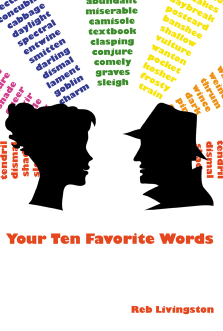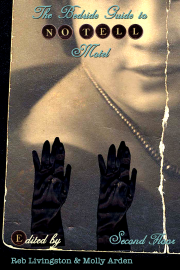Legitimate Famous Poet Semi-Finalist
Now I understand the need to aim advice at beginning poets, most of whom are still learning the basics of publishing. It makes sense to at first teach the general rules before getting into more complicated stuff. So you start off by saying "Before submitting read the magazine -- become familiar with the style and content of what they publish. If you decide your work is a fit, follow the submission guidelines." You can repeat that 100 times and still a significant percentage will ignore that advice because they're too busy or can't be bothered or aren't interested in reading. Those people will send out massive quantities of submissions and will almost always be rejected because:
1. They didn't follow the guidelines.
2. The work wasn't appropriate for the magazine.
3. The poems suck because they're written by people who read very little poetry and don't know the first thing about it.
It's just the way things are -- and when editors are asked for tips/advice on how to get published they often go into a crazed tirade about people not following the guidelines and not being familiar with what their magazines publish -- because they get so many of these types of submissions, over and over, every single day, it's maddening.
This is the way it will always be. People joke about starting a Poetry Idol. Every magazine's slush pile is Poetry Idol -- minus the TV airplay and telephone voting.
It's also important to warn the unsuspecting of scams where they could potentially be bilked out of money or explaining that their self-published book is unlikely be stocked at any bookstores. Of course, few poetry books are stocked in bookstores period.
There's so much basic information about publishing that people don't know. I remember the difficulty I had explaining to my dad what I was doing when I started my own micropress -- how yes while I was publishing one of my chapbooks, I was mostly publishing other poet's works. He didn't understand, why was I doing that? Why weren't they doing it themselves? Were they paying me? I found myself taking books off of his own shelf and pointing to the spine, "See this? This is the author. He wrote this book. See this? This is the publisher. They put the book together, they're marketing it, they're arranging for distribution, etc."
It's like when I was 17 and my dad was teaching me how to to drive, explaining how a car engine worked, how I was going to be responsible for making sure my oil was changed regularly and not driving around on a flat tire.
I was all "I don't care about any of this. I just want my driver's license. Stop bothering me with these annoying details! I just want to drive. Stop holding out and tell me the secret to passing the test. I'm ready already!"
Back when I was a kid and my aunt wrote a book and somehow she hooked up with an agent that said she wrote just like Tom Clancy (somebody she never heard of at the time) -- and she liked to brag about how this agent was very successful and wore a lot of big gold chains. I was a kid and I'm not remembering everything, and I'm not sure if she paid him anything, but it sounded pretty fishy at the time (she was even talking about it being made into a movie). I have another aunt who paid several hundred dollars for children's writing correspondance course and they sent her a certificate that she hung on her wall.
Did they get scammed? Probably. But those experiences gave them validation and made them feel good. On the other hand those experiences never got their work into any kind of print or to any readers. So I guess the question did they get what they wanted?
We can apply this same criteria to the "legitimate" options out there. I paid to attend two different MFA programs. The first one something along the line of $9k in out-of-state tuition. Did I get what I wanted? Hell no, that's why I left. The second I paid $20k. Did I get what I wanted? Somewhat. I have my *terminal* degree. I received a pretty good education. Made some dear friends. But it really didn't teach me much about publishing, well it tried, I was given advice -- advice that wasn't particularly applicable to my situation or interests, but "legitimate" advice nonetheless. To be honest, I learned more about editing and publishing from working four years at AOL. I didn't realize it at the same, didn't appreciate it, but I learned a lot there *and* they were paying ME. Also, I've learned WAY more about contemporary poetry, different styles reading poetry blogs and online magazines. Was I scammed? No, but any ideas I had of the program/degree "making me a poet" were extremely naive. I was already writing poems -- already a poet. Did I become a better poet? Sure. The opportunity to have other poets read, discuss and give critical feedback can be very helpful. Were there other ways of becoming a better poet? You betcha. Did I become a master poet or a master of the poetry field? No. And I hope I'm never considered a "master" of anything. As far as I'm concerned, that's a pretty offensive concept.
The first couple years out of grad school I spent around $1000 on first book contest fees. Did I get scammed? Well, I feel really foolish for doing so. It was a poor way to spend my money. I could have bought a lot of books with that money. I could have put out a lot DIY books with that money.
But I wasn't as foolish and naive as my aunts were, was I? I mean, sure I spent a heck of a lot more money than they ever did -- but I did it "legitimately" -- didn't I?
Legitimate Poet hah hah hah
No wonder this is all so confusing to people new to publishing.
No wonder so many one-time contest enterers, post-MFAs are saying This stinks. I'll do it myself.
But aren't I encouraging hoards of awful, untrained, unskilled people from writing and self-publishing mountains of dreck?
I don't know, what does it matter? Do I hang out at tennis courts and tell the crappy players to get off the court? Do I shout "Get off the stage!" at Karaoke bars?
Maybe if I'm drunk.
I'm not drunk now.
Labels: publishing












